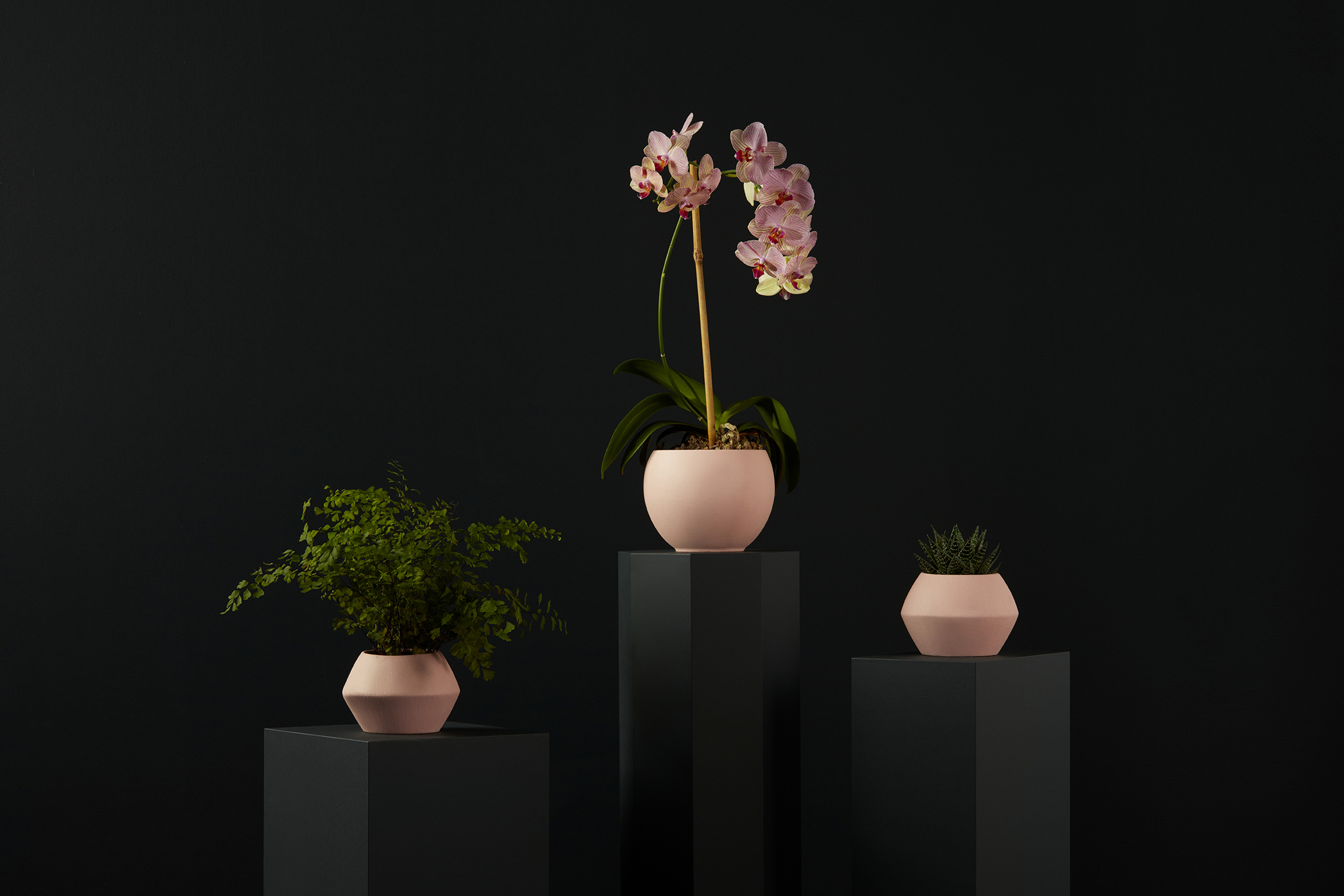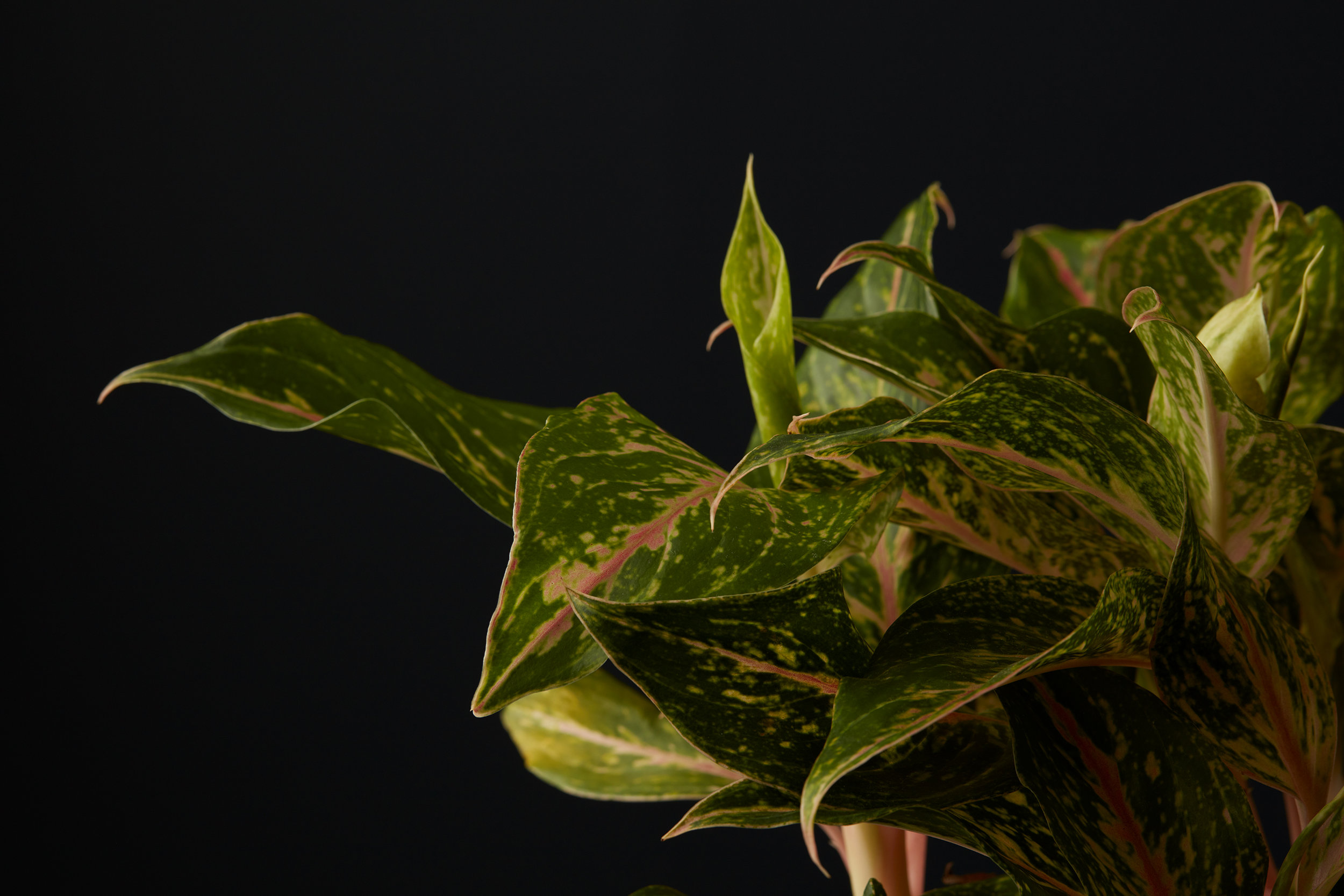Helen Mirren
After 50 years in Hollywood, Dame Helen Mirren has plenty of opinions—and she’s not afraid to share any of them
Rhapsody, January 2018
Story Ellen Carpenter
Photography Jason Bell
Styling Lee Harris
It’s a gloriously sunny October afternoon, and Helen Mirren is soaking in a hot tub perched on a cliff in the Hollywood Hills, shaded by an orange tree heavy with ripe fruit. She pulls down the straps on her navy swimsuit, exposing her creamy, chiseled shoulders, and then runs her hand through her short white-blond hair, slick- ing it back. Water drips down her forehead into her eyes, but she gazes ahead, chin high. “One, two, three, go,” she says softly and
splashes water onto her face like a Sports Illustrated swimsuit model—and then promptly breaks out coughing and laugh- ing. “Only 23 more takes to go!” jokes the photographer, Jason Bell. “When you stop breathing, we got it.” She laughs, shakes her head, slicks back her hair again, and cocks her chin high before splashing herself one more time.
It seems right to first spy Dame Mirren like this: barely clothed and 100 percent confident at 72 years old. In 2008, a photo of her in a red bikini—abs blaring, taunt- ing women a quarter her age—practically broke the internet. She’s peerless in Hollywood. It’s impossible to lump her with other actresses, British or Ameri- can, young or old. No one is as talented as Mirren, as glamorous, as outspoken. And because of this, she has—without trying—become a role model for women of all professions: someone who does what she wants, says what she wants, and enjoys it. Really enjoys it.
“I have no idea how that happened,” she says of her newfound role-model status. Her hair is still wet from the hot tub, but she’s changed into jeans and a sheer white blouse ( black bra peeking out), and we’re sitting on bright-orange-cushioned deck chairs on the porch of the home Rhapsody rented for this photo shoot, sipping English breakfast tea. “Maybe it’s just to do with the fact that I’m still working, if you know what I mean.” She raises a perfectly groomed brow conspiratorially. “It’s inevitable as life rolls on
and you’re still standing that you become some sort of a role model.” (For the record, her best advice is: “Be on time and don’t be an a******.”) “I mean, I do get myself into hot water sometimes by opening my big mouth a little too much, but on the other hand, I’ve always felt that a certain amount of honesty is probably good. You can’t be too guarded and too careful and too ... curated.” She lets out a low chuckle. “Quite early in my career, I made a decision to be as open and as forthright as I could be. It’s dangerous to be too forthright, but I never wanted that carefully constructed public image.”
Probably because of that, she’s never been pigeonholed during her 50-year career. She’s played the ingenue and the sexpot (Age of Consent, Caligula), the worried mom and the badass detective (Mosquito Coast, Prime Suspect), the duti- ful housekeeper and the secret agent (Gosford Park, Red), and the queen, and the queen, and the queen.
This month she takes on yet another new role: a Southern housewife dying of cancer who’s tasked with taking care of her Alzheimer’s-stricken husband in The Leisure Seeker. Mirren received a Golden Globe nomination for her performance— and for good reason. It’s a beautiful film, about love and forgiveness, about truly living, about death. Mirren’s character, Ella, realizes that just because she and her husband, John (Donald Sutherland), are dying, that doesn’t mean they have to live like they are, so they set off in their old Winnebago to the Florida Keys to finally see Ernest Hemingway’s house, a bucket- list trip of theirs that they somehow never got around to when they were healthy. Though they drive each other crazy, their relationship is enviable, that kind of one- true-love story everyone dreams about. But maybe not Mirren. “I think I’ve had more than one love in my life, actually,” she says matter of factly. “But the reality is who you finish up with and how you form that relationship. So of course it’s to do with love, but it’s also very much to do with friendship and partnership and lots of other things. You know, as you pile on memories, and maybe fami- lies, and maybe tragedies, experiences together, experiences apart from each other, arguments, fights—it all piles up and up and up and up to become a whole lifetime together. And then at that point you’ve gone way beyond your generation’s idea of love. You’re so far beyond what you know. It’s much more to do with life experience with someone.” She pauses. “The other thing I do know is, there are no rules. Nothing is the same for any two people.”
Mirren has been married to the direc- tor Taylor Hackford (An Officer and a Gentleman, Ray) for 20 years. They met while working on the film White Nights in 1985 but haven’t collaborated on anything since. When asked whether they would do another movie together, Mirren demurs: “Hmm, I don’t know...” before shaking her head and quickly correcting herself: “I mean, yes, absolutely! I would love to work with him again.” In general, they keep their work “very separate” and are most concerned with scheduling shoots so they can be together at their house in Puglia, Italy, as much as possible. “We absolutely support each other and encour- age each other, but we don’t have heavy, deep discussions about each other’s pro- jects,” she says. “I’ll say, ‘I might be doing this film, Taylor, in September. I think I’m going to say yes.’ And so he says, ‘Oh, OK, fine. Where is it?’” She laughs. “It’s more that kind of conversation. Not, ‘Oh, I must read it and give my thoughts on it!’ And likewise when his projects come up.”
Mirren’s next project is February’s Winchester: The House That Ghosts Built, a supernatural horror film (another first for her) inspired by the story of Sarah Winchester, the heiress of the Winchester Repeating Arms Company. As legend goes, Sarah, who lost her daughter and husband unexpectedly, believed the family was cursed and haunted by all those who died by the Winchester rifle, and she spent the rest of her life in California construct- ing a gigantic mansion—with 160 rooms, staircases to nowhere, and 2,000 doors, trapdoors, and spy holes—to appease the spirits. The film, no doubt, takes on heavier implications now, just following the mass shootings in Las Vegas and Sutherland Springs, Texas. “And that implication, with or without the horrors of Las Vegas or Orlando and the horrors to come—because it will definitely happen again—is simply saying guns cause death, and what about those people?” Mirren says. “I liked the idea of a film that was about the victims of gun violence as opposed to about the perpetrators of gun violence. It’s very much about the victims.” In the U.K., Mirren stresses, “nobody has guns. Police don’t carry guns.” (No, Prime Suspect’s Detective Jane Tennison didn’t either.) “As I say, if Americans are prepared to sacrifice a huge number of Americans to gun violence every year, then what can you say? It’s like the Mayans, sacrificing people to their gods. You’re literally sacrificing people to your god, which is the gun.”
Though she says she needs to watch her tongue, Mirren is actually quite careful with her words. She pauses a lot, squint- ing her pale blue eyes and pursing her lips, often emitting soft “hmms” (most definitely not “umms”) as she’s thinking so you know not to interrupt her; you can almost see the words spinning about in her head, falling into place before she speaks aloud. Sure, she has said plenty of things that people deem controversial (too many things to list, really), but she knew what she was saying, and she’s fine with it.
Another prime piece of advice from Mirren? “Don’t be too up your own bum.” She’s always trying to remind herself of this and to “put myself in the universe and not as absolutely the center point around which the whole of the universe rotates.” This, she says, was one of the most impor- tant lessons she learned when she first started traveling in her 20s, with a touring theater troupe, observing other cultures and communities. “It’s kind of what my tattoo was about”—she rubs her thumb, which is marked with two interlocking V’s, a symbol for the Mayan phrase in la’kech, which roughly translates to “we are one”—“to try to recognize that you are only a small part of the whole universe.”
“I love the way the world is changing; I love the way culture is changing for women, especially,” she continues, taking a sip of her tea. “I’m hoping against hope that women have gone far enough now that there is no pulling them back—in Western society, I might add. But that does seem to be spreading. Thinking of Saudi Arabian women triumphant that they are ‘allowed’ to drive is like arrrgh! That word, allowed, drives me crazy.”
She puts her feet up on the table and admires the wind chimes hanging above her, playing a delicate melody. “I do wish I was 30 now,” she says. “Not because I wish I was 30! Not that. But I want to have more of my life in the world we’re going to have for the next 40 or 50 years, for women. I just want to experience this world as a younger person. I had to go through the ’60s and ’70s, which was hideous. It was a hideous time for women, really, because the impact of birth control and the so-called sexual explosion, which was actually dreadful for girls and women. It was the Hugh Hefner attitude—girls and women became sexual objects. I hated Hugh Hefner and everything he represented.”
Mirren says she first felt beautiful in her late 30s. In her 20s, she felt too curvy, too much; she didn’t have the Twiggy body she was supposed to have, that everyone was supposed to have. But finally, “I just relaxed into who I was,” she says. “It was never going to change; I wasn’t suddenly, overnight, going to become something else. And everything worked, if you know what I mean.” She throws her head back and laughs loudly.
Mirren has spent most of her career being labeled a sex symbol—even at 72, a time when most women are just labeled grandma. How does she feel about that? She sighs and runs her hand through her hair, which is almost dry now. “I’ve had to come to terms with it over a long period of time. Luckily it’s fading now.” She laughs. “Finally fading. And what does it mean really? You know, what does it mean? Does it mean that people want to f*** you? Because that’s rather ghastly, isn’t it, the thought of all these weird strangers? I’ve always found it a very tacky and unpleasant tag, but it’s one I
had to kind of grit my teeth and bear for a long, long time.” With her tough-as-nails con- fidence and disregard for societal expectations of how a woman of a certain age is supposed to be, it’s easy to argue that Mirren is a differ- ent kind of sex symbol—more empowering Wonder Woman than passive Playboy Bunny. “If it means you’re a symbol of a certain kind of woman, that’s fine by me. That’s abso- lutely fine. But I don’t think it does somehow! I think it means the other.”
A beauty icon, though—that’s a different story. Mirren is the face of L’Oréal’s Age Perfect moisturizer (though in August she opened that “big mouth” of hers at a panel and said that it “prob- ably does f*** all, but it just makes me feel better”), and the week before our interview, she walked down her first runway in a fashion show for the beauty brand in Paris. “Oh my god, I loved it so much!” she squeals. “I was so happy! It was a dream come true, never having remotely looked like a model girl. The amazing clothes and, aah, the music! And down the Champs-É-f******-lysées! I mean, my god! In front of the Arc de f****** Triomphe. It was amazing! It was one of the best things ever. And how fun for it to happen at this end of my life?”
Like any woman, Mirren is tired of all the antiaging talk and our culture’s obsession with turning back the clock, but she also understands it. “It’s the business of dreams and optimism, and I have no complaints about that,” she says. “I think dreams and optimism are what keep us all going, to a certain extent.”
Mirren has plenty more dreams of her own. She wants to travel more: to India, to Sri Lanka, to Vietnam. “I’d love to go to Pakistan, I’d love to go to Uzbekistan, all the stans! So many places! It’s endless, really.” She wants to make more movies, too, of course (she just started filming an action flick with Luc Besson), though she doesn’t know if she’s up for more
theater. (“It’s hard.”) She flirts with the idea of retirement— “My husband makes fun of me when I say, ‘Oh, I think this is my last job probably, Taylor.’ He says, ‘Yeah, yeah, I’ve heard that one before!’”— but she knows that’s not going to happen anytime soon. At the end of the day, she doesn’t want to be thought of as a great actress, an award win- ner, a sex symbol (hot tub photo be damned). So how would she define herself ? “I think as a worker,” she says. She purses her lips and nods. “A worker.”









